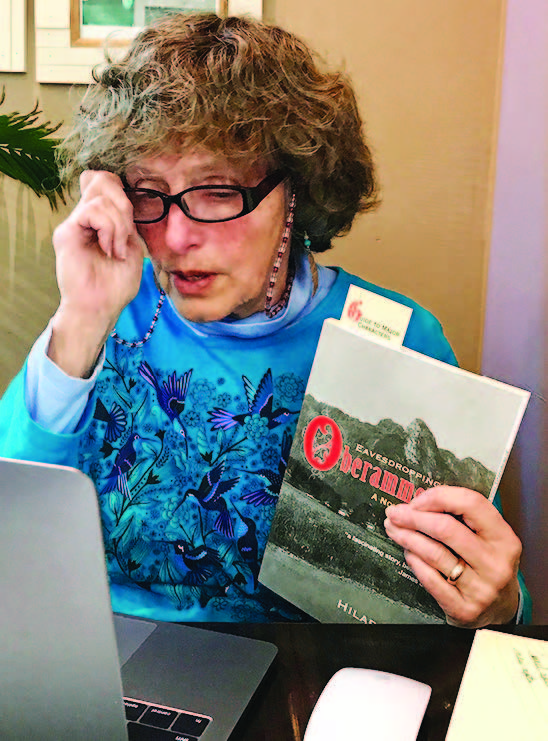Talking to young people on the 80th anniversary of Kristallnacht
As I write this piece for the Nov. 9 issue of The Voice, the 80th anniversary of Kristallnacht, I am preoccupied with thoughts of forboding given the events of Oct. 27, in Pittsburgh at Tree of Life synagogue.
The Pittsburgh event came as no shock to me, as I write and think about the importance of remembering Kristallnacht. The Saturday night of the attack, I attended a folk music concert where one of the songs I heard was “Kristallnacht Is Coming.” Charlie King sung this song that tells of Kristallnacht as coming for immigrants. (The song can be heard on Youtube.)
I committed to writing about how to talk to children about Kristallnacht and the Holocaust, but the need is more urgent now.
We can help ourselves and our children by our own resilience no matter the direction in which our nation is headed. I am blessed to be an American, but I cannot be tranquil, given the history of what happened in Germany and then throughout Europe. Something is obviously quite different right now as we experience a resurgence of nationalism in our country and in many other countries throughout the Western world.
Should we try to shelter our young people from the truth of our past history and now our present experience? We can’t, even if we wanted to, given the 24/7 news cycle and social media. Even as a young child I have always known the history of what took place in Germany and how it was spread throughout Europe. I also knew stories of people and countries that resisted. And I knew the incredible resilience of people who survived.
Our state legislature has mandated Holocaust and genocide education in Rhode Island’s secondary schools that began in the 2017-2018 academic year. The Rhode Island Department of Education describes the purpose of this on their website: “The study of such past and present events will stimulate thought and discussion on why these tragic incidents happen and, hopefully, how society can prevent them from happening again.”
Two social studies teachers I interviewed shared their experiences of teaching courses that have included units on the Holocaust. In East Greenwich, one teaches a course in American democracy to ninth graders that includes bringing in elected and government officials and community organizers. He prepares his students to be involved in citizen activism.
In Pawtucket, the teacher described his student body as identifying with the experience of prejudice revealed in the subject. The history of genocide opens students up to speaking about their own lives and what is happening currently.
In this extremely tumultuous year, with almost daily news of hate-inspired acts of violence, the opportunity for adults and young people to speak together in a school setting breaks down the sense of isolation that may be one of the triggers to the perpetrators of violence.
This past September, on the second day of the school year, William Parsons, age 16, was fatally shot outside of the Providence Career and Technology Academy (PCTA). One teacher shared the experience of how she helped the students in her class the day after the shooting, on the third day of the school year.
“I allowed my students to talk openly. I posed questions. They answered them with honesty. It broke my heart to hear a kid say that things will never change. Many agreed. I told them that I simply couldn’t accept that and that they shouldn’t either. We talked about checking up on your friends and the power of checking your friends. I told them if they hear their friends talking crazy, do not take it lightly. Reach out to your friends and de-escalate. Remind them that gun violence affects much more than the intended victim. It hurts the entire community. We talked about toxic masculinity. We talked about the finality of murder. We talked about the power of technology. We talked about memorializing William by sharing good stories about him. I have anxiety, and I’m replaying everything, hoping I said the right words to make them feel comforted and safe and powerful.”
For younger children who must be frightened by all that fearsome noise out there, I appreciate being reminded what Mr. Rogers said, “When I was a boy and I would see scary things in the news, my mother would say to me, ‘Look for the helpers. You will always find people who are helping.’”
With a little help from our friends, we can all be helpers. I know I need help. Writing for the Voice has given me a voice. As part of the Jewish Alliance’s “Evening of Jewish Renaissance” on Nov. 17, I will be facilitating a workshop on talking to children about the Holocaust and Kristallnacht and now to include the recent events of violence in our own cities and towns. As we come together, I look forward to hearing the voices of others.
As we think of what could have been different in Germany 80 years ago, we appreciate the support of people who are Muslim, Christian, people of color who have expressed their solidarity with us. We too must stand with the people targeted in this time of anti-Muslim, anti-black, anti-immigrant rhetoric. Such mutual solidarity could make all the difference.
HILARY SALK is the author of “Eavesdropping in Oberammergau,” a novel that draws on her experiences as an American Jewish girl living with her parents in Germany three years after the Holocaust. Reach her at hilarysalk@hilarysalk.com.








